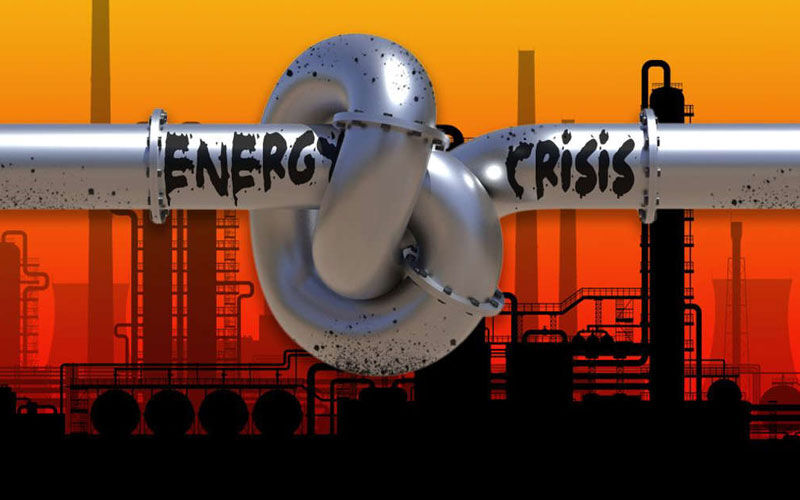Dr. Mehdi Fakheri in an interview with the site of the Strategic Council on Foreign Relations referred to the consequences of Russian invasion of Ukraine on transfer of energy to Europe, as well as voicing concern of the EU authorities, and noted:” in the 21st century producing and consuming countries have tried a lot to influence political trends through long term contracts and engaging their partners, naturally the issue has become more acute with the developments of the recent years in Europe”.
Europe’s Limits to Sanction Russian Energy
Having referred to changes and developments in oil political geography and global energy market, issues related to global warming as well as environmental pollutions and also the U.S. effort to employ energy as a political leverage he added:” refineries are built based on special specifications of light and heavy crude oil of a country. This is not possible to use every type of energy source at any time”.
Fakheri referred to the remarks made by High Representative of the European Union for Foreign Affairs and Security Policy on the restrictions to impose sanction on Russian oil and gas by the EU who had said the Union has done whatever within its might to impose sanctions on Russia so far and nothing more can be done. He added:” at the present situation, we witness rising prices of energy in Europe that has caused concerns for the authorities of these countries, but in spite of its fragile and sensitive status of its energy markets, and the kind of relations Germany has with Russia, Europe has made its decision to accompany with the U.S.”.
Europe; Determined to Accompany with the U.S.
He explained:” during the collapse of communism and the Eastern bloc, be in through investments or through political contacts as well as ideological approaches, Germany played a very effective role. But now, despite investments on Nord Stream 2, it has made its decision. For political reasons, they also stood by the U.S. and for economic reasons too, to prevent the repetition of Russian threats to other European countries, they have to go along with the U.S. This has happened contrary to the will of Germany and France”.
Fakheri stated:” it seems that from the outset, a part of reactions raised to the Russia’s threats on Ukraine accession to the EU and NATO, was a segment of the U.S plan to be active in global gas market. As they seized the opportunity to fill the vacuum of the absence of Iran’s oil in the market, now they do the same to fill the vacuum created by the absence of Russian gas”.
University professor Fakheri continued to analyze the recent remarks of President of European Commission at the European Summit Meeting that the EU should stop importing gas and oil from Russia as of 2027 and that she is going to propose a plan in this respect in mid-May 2022. Having referred to some analyses concerning the world’s farewell to the Russian oil, he continued:” within the past few years, oil from Iraq, Iran and Libya opened their way to markets despite the toughest situation, sanctions managed to reduce the amount of oil flow from those countries but failed to stop it completely. Farewell to energy resources are more difficult than what many conceive. Moreover, the amount of energy provided by Russia is not basically comparable to that of these countries”.
The World without Russian Oil & Gas
He emphasized:” Russia is present in geopolitics and geo-economics of the world, the presence in many cases is both inevitable and unavoidable. Therefore, in spite of the international sanctions there, one can not speak of the world without Russian oil and gas, because Russia has a network that can preserve its presence in the markets. However, one can imagine that after the country’s presence fades out, it will not have its previous decisive role in the global oil and gas markets as before, but will remain present forever, as a skilled player at global energy scene”.
Fakheri pointed out to differences of opinion among European countries about Russian oil and gas sanction and while emphasizing the importance of OPEC member countries in this respect, he said:” it seems that in view of mutual economic dependence of Russia and Europe on each other, the unofficial oil and gas trade of Russia will boost in short term. Trade in energy sector is a lucrative business, some bear its high risk, and its channels to achieve the goals will be created. Anyway, Vladimir Putin himself has also announced that he would not intend to cut energy export to Europe, and he would remain committed to all obligations he pledged to Brussels in this respect”.
Having said that it has been several years since Europe has stressed on the necessity to be independent from Russian energy, but has failed to deliver the goal, the analyst of international economy added:” although the French Minister of Economic Affairs has declared that Europe has solutions to become independent from Russian gas, but substitution of resources is definitely a mid- and long-term process and at present situation, Europe has no alternative, from the other hand political coercion has caused the raising of issues like independence of energy from Russia”.
He mentioned the energy resources of Iran as one of the sources of interest to Europe, and having underscored the necessity to answer the question that who did prolong the settlement of Iranian nuclear dossier to guarantee their long term interests in energy sector? he continued:” Russia is forced to approach the unofficial channels of energy exporting. Anyway, the situation of the war has compelled such issues. Russia can not stop its oil and gas export to Europe too. Europe’s collapse is less advantageous than to achieve its goals in war and it is willing while continuing the war, to be active in energy export market too.










0 Comments